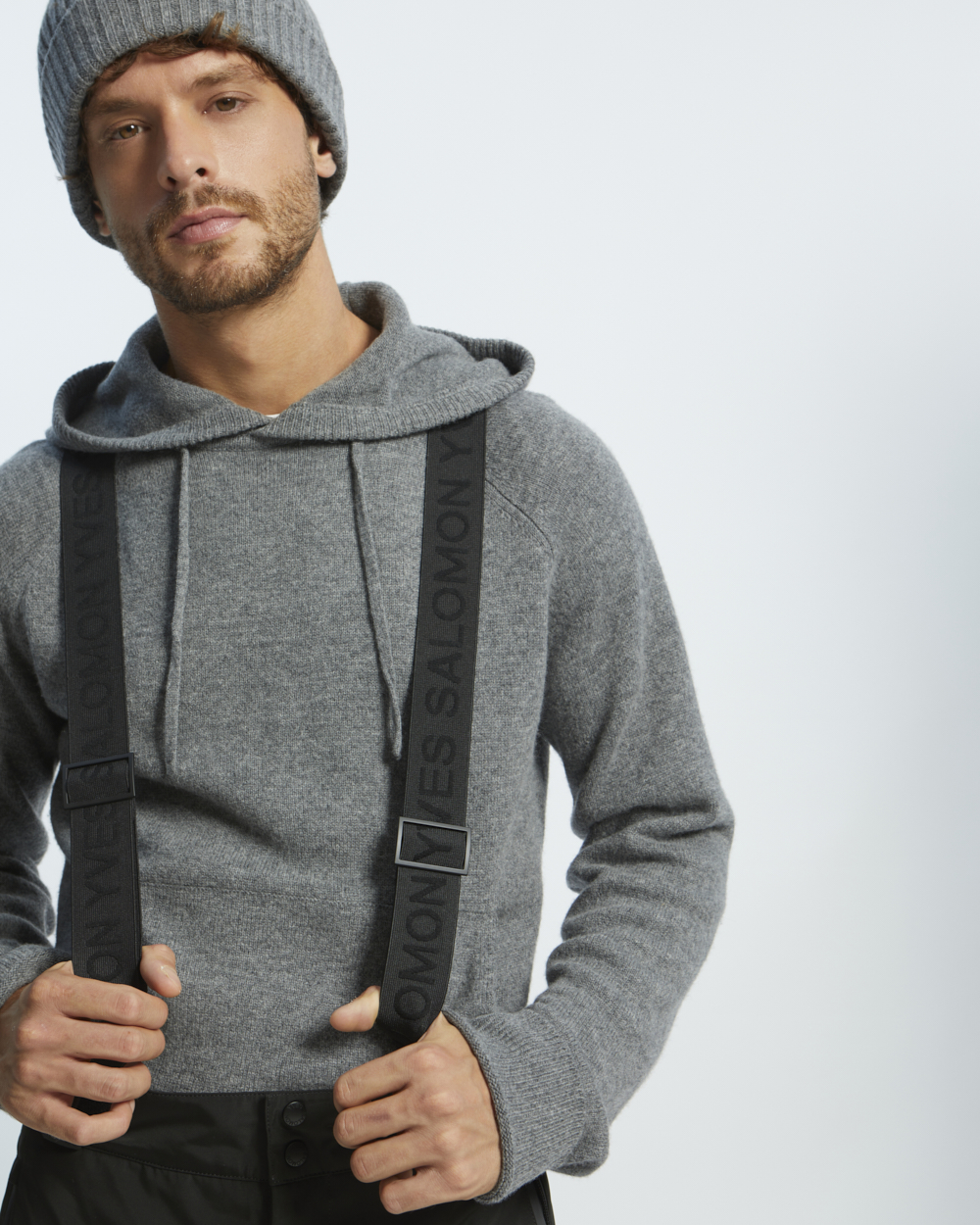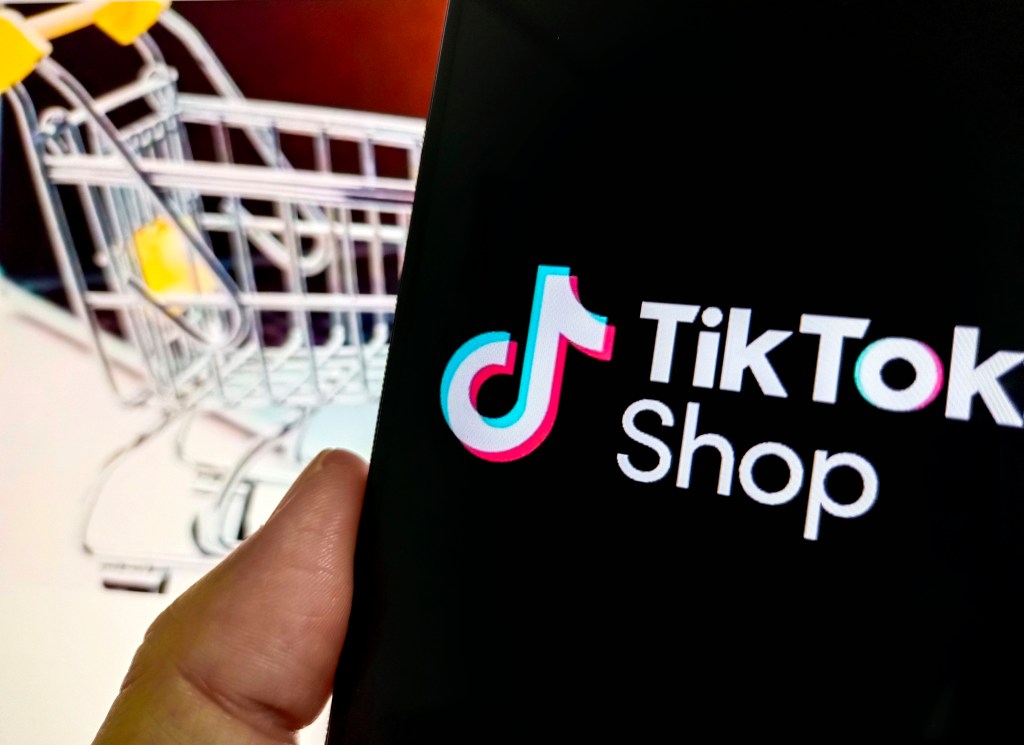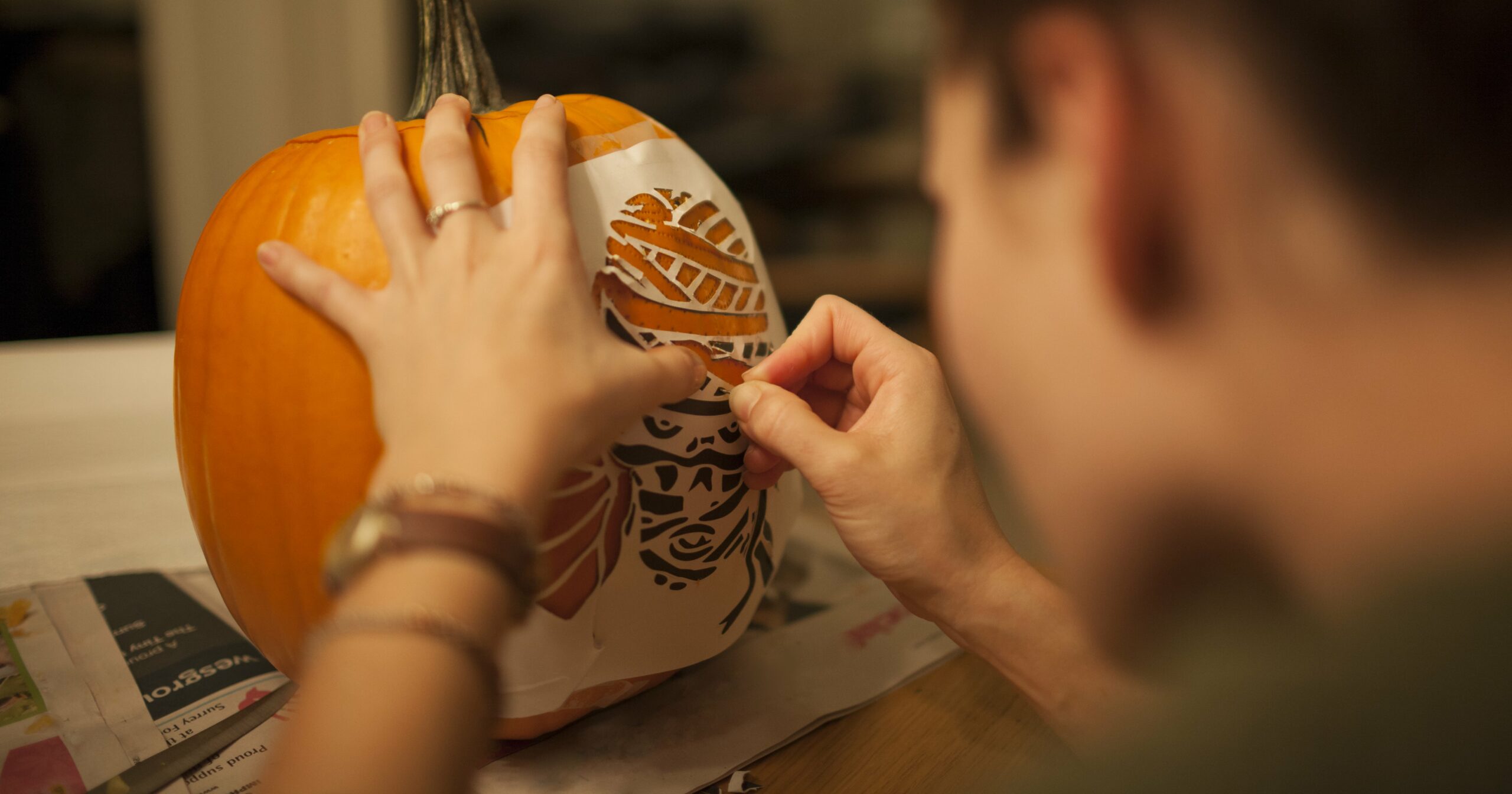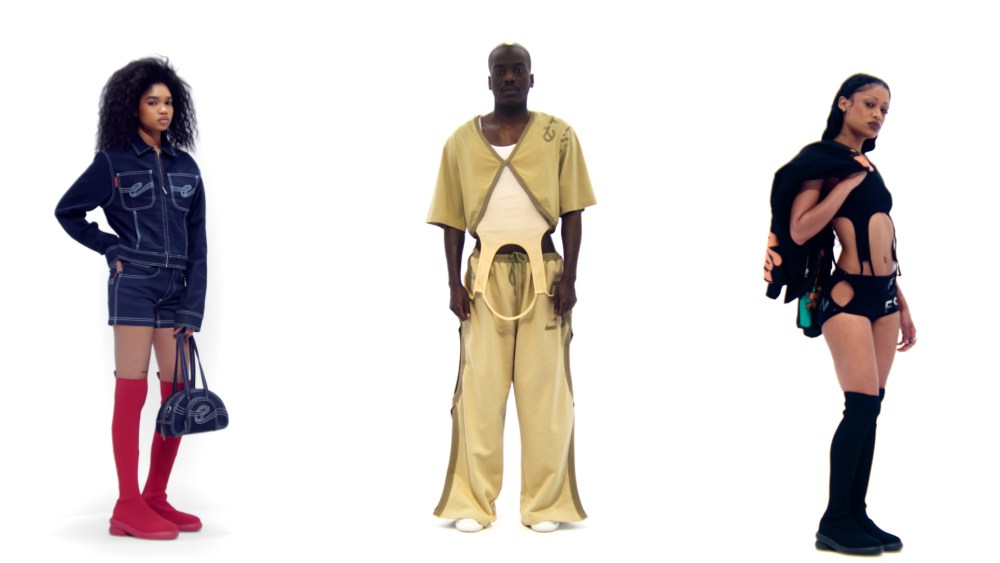French furrier Yves Salomon is expanding his reach in the menswear business. After presenting his first full men’s line for fall 2023, the brand’s first summer collection will launch in January during Paris Men’s Week.
It’s been a piece-by-piece progression since the brand created its first outerwear for men in 2015 after it discovered guys were buying military-inspired women’s parkas off the rack. Salomon has slowly added items since then.
“We had a lot of requests, so we decided to extend it,” Salomon said. “Actually, a lot of men like the way we approach fashion — especially our winter garments.”
The fall collection features slim-cut jackets, blue and khaki trousers with suspenders, cashmere sweaters and the smart casual quarter-zip collar popularized by “Succession.” Shearling coats are also offered.
Although the lightweight nature of the summer season initially presented a dilemma for the company — “It was a challenge because there is no fur and no shearling,” he said — Salomon is going full steam ahead with the ready-to-wear collections and sees the category as a main growth driver. Men’s represents about 10 percent of sales now, but he sees that increasing to 30 percent within two years.
To help achieve that goal, the brand has opened a corner in Paris’ Le Bon Marché, and will open a pop-up in London’s Harrods — the only department store in U.K. that still sells fur — in December. “We are satisfied with the results — it is one of the best[sellers] on the floor,” said Salomon of the Le Bon Marché corner.
In addition to the ready-to-wear, the brand has also developed a full men’s ski collection, which is sold mostly in its 15 company-owned stores, centered in resorts around the world. The ski line will also have a big push in China where the goal is sell in 1,000 ski resorts by 2030. “There is huge demand in the winter ski garment sector there,” he said.
Salomon sources fabrics from Italy and Spain, with fur coming from Scandinavia, with the majority of the collections produced in France. Salomon said they are “using their know-how” from the women’s lines for the men’s collection, which is designed by a team based in Paris.
“There is demand for a luxury product that is also fashionable, comfortable and done with beautiful material,” he said. “There is a little bit of a vacuum in the market.”
New products in the men’s line include cashmere sweaters, which have initially sold well and will be expanded. And it has developed a range of fur-alternatives for retailers and platforms such as Mr Porter, which have ethical policies.
“Because we do not have big distribution, we feel we have a huge potential for expansion,” he said.
As a way to beef up its wholesale presence, Salomon will participate in January’s Pitti Uomo show in an effort to reach new buyers. “We’re going to be quite aggressive commercially to extend our distribution.” The company’s ability to now offer two full collections a year should also help the brand reach its potential, he believes, as its previously limited range was a problem for retailers.
Pieces in the men’s line range from 300 to 3,000 euros for its signature fur-lined Army parka. Salomon believes this price range positions it competitively among luxury brands. “[Our target] is a man who can afford a beautiful, nice garment,” he said. “We are quite aggressive on price and so it is the man who is looking for a luxury product and value.”
In the U.S., the brand operates a store in Aspen and sells at Bergdorf Goodman in New York, but the country is a major growth target for 2024. “We find a lot of great potential there. For the moment it is not a big market but we expect it to grow,” he said, noting they will extend their reach through additional department and specialty store distribution instead of opening more standalone stores.
China also is a target, due to the rising popularity of skiing and snowsports. It’s available through Lane Crawford and Salomon will work to expand distribution with specialty stores as well. South Korea is also a target for the brand.
While expanding wholesale is a key strategy, direct-to-consumer is also a focus. Web sales account for around 20 percent of sales and Salomon is seeking to more than double that over the next two years. “We are doubling the investment in communication and the team will also be doubled,” he said.
Despite many luxury brands goinng fur-free, including Armani, Prada and all the Kering houses including Balenciaga, Gucci and Saint Laurent, Salomon will continue to use fur, particularly in men’s.
“What’s interesting is the attitude for men’s fur is not as aggressive as women’s,” he said. “I question myself every day but I think they feel that their own comfort is more important than the criticism they could get.”



